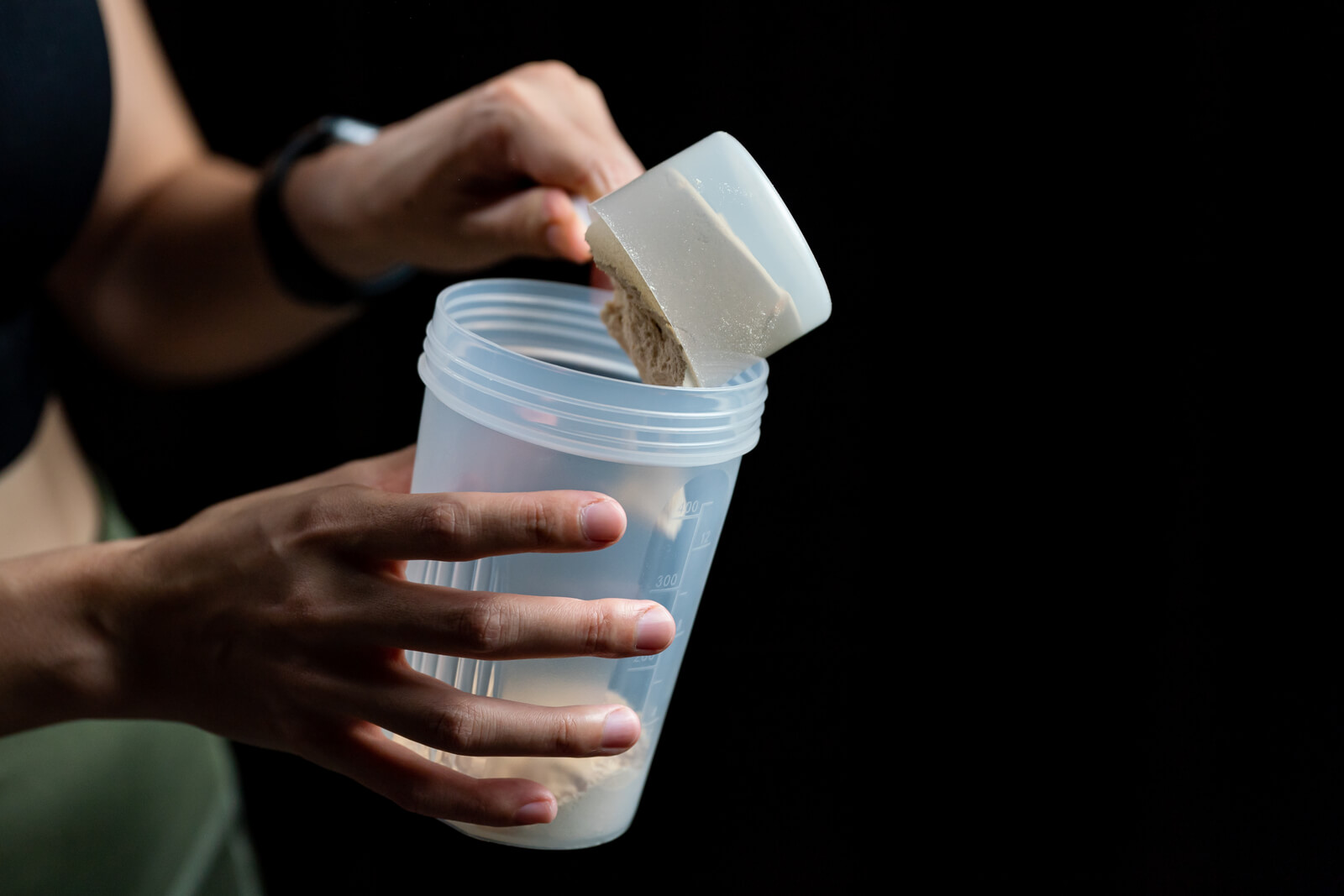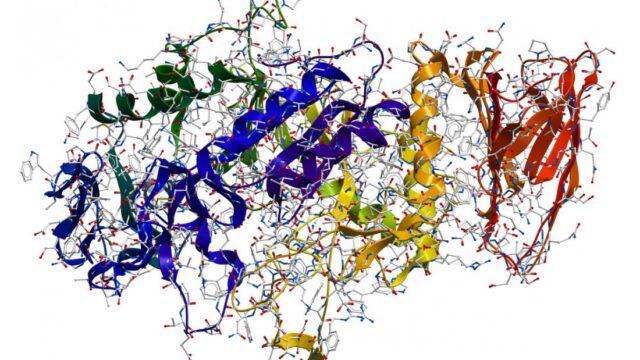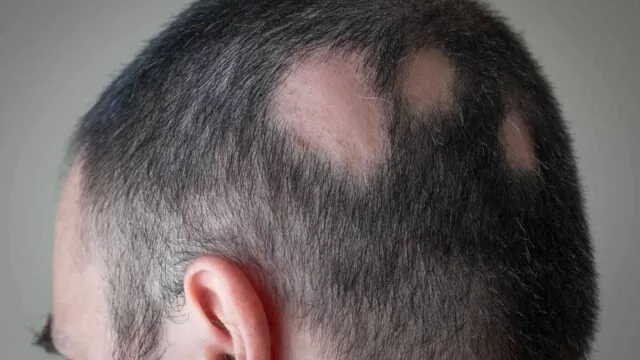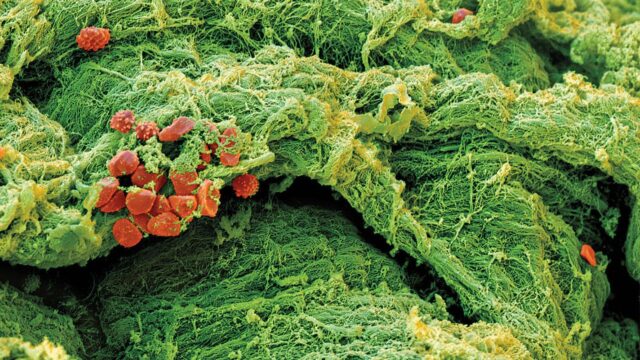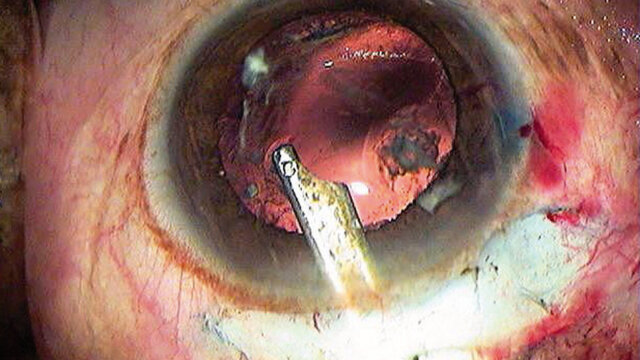FTC disclaimer: This post may contains affiliate links and we will be compensated if you click on a link and make a purchase.
Creatine is a popular supplement used by athletes, bodybuilders, and powerlifters to help build muscle mass and strength. It has also become very popular among non-athletes who want to increase their energy levels and endurance.
Creatine is a natural compound in meat, fish, milk, eggs, and vegetables. It helps muscles store glycogen during intense exercise, allowing you to perform longer without fatigue.
However, the FDA doesn’t regulate creatine supplements, so you should always check with your doctor before taking any new supplement.
We’ve compiled a list of everything you need to know about Creatine, including its benefits, side effects, dosage, food sources, and supplements. This information will help you decide whether or not you should try Creatine.
What is Creatine
Creatine is a nitrogenous organic acid that occurs naturally in vertebrates. Its main function is to facilitate the recycling of adenosine triphosphate (ATP), the body’s energy currency. Creatine was first identified in 1832 by French scientist Michel Eugene Chevreul.
Creatine is synthesized in the liver, pancreas, and kidneys from the amino acids glycine and arginine. It is transported through the blood and stored in skeletal muscle cells, used for energy production during short bouts of high-intensity exercise.
When ATP is depleted, creatine phosphate donates a phosphate group to ADP, restarting ATP synthesis.
Creatine supplementation has been shown to improve exercise performance and increase muscle mass in athletes. It is also a popular supplement among bodybuilders and other strength athletes.
Creatine is safe for most people, but some potential side effects include weight gain, cramping, and gastrointestinal distress. Creatine should be used cautiously in people with kidney or liver disease, diabetes, or high blood pressure.
How does Creatine work
Creatine is a nitrogenous organic acid that helps supply energy to cells, primarily in the muscles. It helps recycle adenosine triphosphate (ATP), the energy molecules used for short-term storage and transport in cells.
Creatine is mostly synthesized in the liver, pancreas, and kidneys from the amino acids glycine and arginine. It is transported through the blood and taken up by tissues with high energy demands, such as the brain and skeletal muscle, through an active transport system.
Once inside the muscle cells, Creatine is phosphorylated by an enzyme called creatine kinase to form phosphocreatine (PCr), which is then used to regenerate ATP.
ATP is the main energy source for muscle contraction and other cellular processes. PCr levels are highest during intense activity, such as weightlifting, and they gradually decline as ATP is used and then resynthesized from ADP.
Pros and cons of Creatine
Creatine is a popular supplement among athletes, bodybuilders, and even some regular people looking to improve their physical performance.
It’s not just for people looking to build muscle strength; Creatine has been shown to improve performance in various activities, including weightlifting, running, and even brain function.
But as with any supplement, there are potential side effects and risks to taking Creatine. In this section, we’ll look at the pros and cons of Creatine to help you decide if it’s right for you.
Creatine Pros
1. Creatine can improve physical performance.
The most well-known benefit of Creatine is its ability to improve physical performance. Numerous studies have shown that Creatine can help improve performance in activities that require short bursts of energy, such as sprinting and weightlifting.
2. Creatine can improve brain function.
In addition to its physical benefits, Creatine has also improved brain function. One study found the effect of creatine supplementation in improving memory and brain function in young adults.
3. Creatine is safe and has few adverse effects.
Creatine is one of the most studied supplements on the market, and it is generally considered safe for most people.
Some people may experience mild side effects such as stomach upset, weight gain, or cramping, but these are typically short-lived and go away with continued use.
Creatine Cons
1. Creatine can cause weight gain.
One of the potential adverse effects of Creatine is weight gain. This is because Creatine pulls water into your muscles, which can cause your muscles to absorb more glycogen (a storage form of glucose). This glycogen can then be converted into body fat.
2. Creatine can cause cramping.
Another potential side effect of Creatine is cramping. This is because Creatine can increase the amount of acid in your muscles, leading to cramping during exercise.
3. Creatine can interact with some medications.
Creatine can interact with medications, such as those used to treat high blood pressure or heart conditions. You must talk to your doctor before starting a creatine supplement if you take any medications.
Benefits of Creatine

Creatine is a substance that is found naturally in the human body, as well as in many foods we eat. It’s also sold as a dietary supplement. Creatine is perhaps best known for its role in helping to build muscular strength and improve athletic performance.
But Creatine can also have other benefits, including enhancing brain function and reducing muscle soreness. Additionally, some people report that taking Creatine can increase their energy levels.
Let’s look into some of the common benefits of Creatine.
Increase energy during exercise
Creatine is effective in improving exercise performance and increasing muscular strength. However, the evidence for these effects is mixed and more research is needed.
Creatine is thought to work by increasing the availability of ATP, the body’s main energy source. ATP is used to power muscle contractions; therefore, more ATP should theoretically lead to more muscle power and better exercise performance.
Creatine is naturally found in the body but can also be taken as a supplement. The most common form of creatine supplement is creatine monohydrate. This form of Creatine has been studied the most and effectively improves exercise performance.
Creatine supplementation has been shown to improve exercise performance in various populations, including young and old adults, athletes, and people with various health conditions.
The most consistent results have been seen in studies of people doing short-term, high-intensity exercise, such as sprinting.
In general, the evidence suggests that creatine supplementation can improve exercise performance in people who are doing short-term, high-intensity exercise.
However, more research is needed to confirm these effects and to determine whether they apply to other types of exercise and populations.
Helps in Increasing Muscle Mass
Creatine has been shown to help in increasing muscle performance. A study showed that those who were supplemented with Creatine for eight weeks increased their muscle mass by 2 kg compared to those who did not supplement with Creatine.
The group supplemented with Creatine also showed increased bench press and squat strength.
Creatine has also been shown to help in improving exercise performance.
A study showed that those who were supplemented with Creatine for six weeks increased their squatting power by 14%, compared to those who did not supplement with Creatine.
The evidence from studies suggests that Creatine can help in increasing muscle strength and improving exercise performance. However, more research is needed to confirm these effects.
Improve athletic performance
Creatine has been shown to improve athletic performance in many studies.
In one study, athletes who took Creatine for six weeks improved their performance in many tests, including a 5-kilometer running test and a vertical jump test, compared to those who didn’t take Creatine.
In another study, Creatine improved performance in a rowing test by eight percent. And in a third study, Creatine was shown to improve performance in a sprinting test by two percent.
So, if you’re looking for an edge in your athletic performance, Creatine may be worth considering. It’s important to note that not all studies have found that Creatine improves performance.
So, if you decide to take Creatine, you may want to monitor your results to see if it’s truly effective.
Enhanced Brain Function
Creatine is a compound that is naturally produced in the body and involved in energy production. It can also be supplemented to improve energy levels. Creatine has been shown to improve brain function.
A study published in the journal Neurology found the effects of creatine supplementation in improving brain function in people with mild cognitive impairment.
The study involved Giving participants a daily dose of 5 grams of Creatine for six weeks. The results showed that those supplemented with Creatine had improved brain function.
Another study published in the journal Neuropsychopharmacology found the effects of creatine supplementation in improving working memory.
The study gave participants 5 grams of Creatine daily for six weeks. The results showed that those supplemented with Creatine had improved working memory.
There is evidence that Creatine can help improve brain function. Creatine supplementation has been shown to improve brain function in people with mild cognitive impairment and working memory.
Help in reducing muscle soreness
Creatine effectively reduces muscle soreness, particularly when taken in high doses. A study published in the Journal of Strength and Conditioning Research found that Creatine could significantly reduce muscle soreness after a workout.
Another study, this time published in the Journal of Sports Medicine and Physical Fitness, found that Creatine was able to reduce muscle soreness during a long-distance run.
The evidence from these studies suggests that Creatine effectively reduces muscle soreness, especially when taken in high doses. If you’re looking for a way to reduce muscle soreness, Creatine is worth considering.
If you’re considering taking Creatine, you must talk to your doctor first. This is because Creatine can interact with some medications, and it’s possible to have an allergic reaction to Creatine.
Side effects of Creatine
If you’re looking for an edge in your workout regimen, you may have considered taking Creatine. This supplement is designed to help your muscles produce more energy, is helpful in strength training, and allows you to push harder and longer.
But before you start popping pills, it’s important to understand the possible side effects of Creatine.
Creatine is a compound that’s naturally found in your muscles. When you take a supplement, it increases your muscles’ stores of phosphocreatine.
This substance helps your muscles produce energy more quickly. In theory, that should lead to better performance in short bursts of activity, like sprinting or lifting weights.
Creatine is one of the most popular sports supplements on the market. A 2018 survey found that about 7% of American adults had used it the previous year.
It’s also popular among teens and young adults. A 2017 study found that about 8% of high school students in the U.S. had used Creatine in the previous month.
Creatine is generally considered safe. But there are some potential side effects to be aware of. These include:
Weight gain
Creatine can cause water retention, so you may gain weight if you take it in supplement form. However, this effect is usually temporary and goes away once you stop taking the supplement.
Digestive issues
Creatine can cause stomach pain, nausea, and diarrhea. To avoid these problems, take Creatine with plenty of water.
Muscle cramps
Some people report experiencing muscle cramps while taking Creatine. To reduce your risk, stay hydrated, and don’t overdo it with your workouts.
High blood pressure
In some people, Creatine can cause a short-term increase in blood pressure. This effect is usually temporary and goes away when you stop taking the supplement.
Kidney problems
There is some concern that Creatine could cause kidney damage. However, this side effect is not well-established, and it’s thought to be very rare.
If you’re considering taking Creatine, talk to your doctor first. They can help you weigh the risks and benefits and decide if the supplement is right for you.
Creatine Supplement
Regarding supplementation, Creatine is one of the most popular and well-researched compounds.
Creatine is commonly found in powder form, but it can also be found in some foods, such as red meat and fish.
However, consuming enough Creatine through diet alone would be difficult to see the same effects as supplementation. This is why many people choose to take creatine supplements.
In exercise and athletic performance, Creatine is most effective in short, high-intensity activities, such as sprinting and weightlifting.
In one study, creatine supplementation improved performance in a 100-meter dash by 2.2%, while another showed an 8.8% improvement in performance in a 500-meter row.
Creatine is most effective in increasing muscle mass in young, healthy adults. In one study, healthy young adults who supplemented with Creatine for eight weeks gained an average of 2.2 kilograms of lean body mass, while those who did not supplement with Creatine gained an average of 0.3 kilograms.
Creatine has also been shown to be protective against cognitive decline. In one study, elderly adults who supplemented with Creatine for six months showed improvements in memory and executive function, while those who did not supplement with Creatine showed no such improvements.
The evidence is clear: Creatine is a powerful compound that can have a variety of benefits for both athletic performance and health. Creatine is a great option if you’re looking for a way to improve your performance and protect your health.
How much Creatine should I take?
The recommended dose of Creatine is 0.3-0.5 grams per day for people who are not taking it regularly. The dose is 3-5 grams per day for those taking it regularly.
The best way to take Creatine is to spread the doses over the day. For example, you could take 0.1 grams before and after your workout and 0.1 grams before bedtime.
If you want to gain muscle mass, the recommended dose of Creatine is 0.5-0.8 grams per day.
There is no evidence that taking more than the recommended dose of Creatine is beneficial. It may even be harmful.
Creatine is generally considered safe, but there are some side effects to be aware of. These include weight gain, bloating, and diarrhea.
If you’re considering taking Creatine, talk to your doctor first. They can help you decide if it’s right for you and recommend the best dose.
When to take a Creatine supplement?
There is a lot of debate surrounding the best time to take Creatine. Some people believe that it should be taken before workouts, while others claim that it is more effective when taken after workouts.
So, what does the evidence say?
Some studies have found that Creatine is most effective when taken before workouts. In one study, rugby players who took Creatine before training sessions significantly increased their performance.
Other studies have found that Creatine is just as effective when taken after workouts. In one study, weightlifters who took Creatine after their workouts gained more muscle mass than those who did not take the supplement.
So, the evidence is inconclusive. Some studies suggest that Creatine is most effective when taken before workouts, while other studies suggest that it is just as effective when taken after workouts.
If you are considering taking Creatine, you may want to experiment with both timing options to see what works best for you.
When are the best supplements with Creatine?
There are many different types of creatine supplements available, so it’s important to choose one that is right for you.
Creatine monohydrate is the most popular and effective form of Creatine. It is also the most affordable.
Try creatine ethyl ester or creatine hydrochloride if you want something more expensive. These forms of Creatine are more expensive but may be more easily absorbed by the body.
When you are shopping for a creatine supplement, be sure to read the label carefully. Some products may not contain pure creatine monohydrate. You should also look for a product that has been third-party tested to ensure that it is pure and effective.
Creatine FAQ
Do Creatine cause hair loss?
Creatine is a supplement that is effective in increasing muscle performance and strength. However, some concern is that it may also be linked to hair loss.
It is thought that Creatine may cause hair loss by increasing levels of DHT (dihydrotestosterone), a hormone linked to hair loss. DHT is produced when testosterone is metabolized by the enzyme 5-alpha-reductase. Creatine may increase levels of DHT by increasing the activity of this enzyme.
There is some evidence to support this theory. A study in rats found that Creatine increased levels of DHT. Another study found that men who took creatine supplements had higher levels of DHT on their scalp.
However, it should be noted that these studies were conducted on animals and may not necessarily apply to humans. Additionally, the men in the second study were already experiencing hair loss, so it is possible that Creatine was not the cause.
Overall, the evidence is inconclusive. There is evidence that Creatine may be linked to hair loss, but more research is needed to confirm this. If you are concerned about hair loss, you may want to avoid taking creatine supplements.
What is the creatine loading phase?
Creatine is produced in the liver and kidneys and transported to the muscles through the bloodstream.
The body uses Creatine for energy production, especially during high-intensity activity. Creatine is stored in the muscles in the form of phosphocreatine.
The muscles use phosphocreatine for energy production during short, burst activities such as sprinting or lifting weights.
The creatine loading phase is a period of time when you first start taking creatine supplements when you are trying to increase your muscle creatine stores.
The loading phase usually lasts 5-7 days, during which you take a higher dose of Creatine than you would during the maintenance phase.
The goal of the loading phase is to saturate your muscles with Creatine so that you can see the benefits of creatine supplementation. Most people see the biggest increase in muscle creatine stores during the loading phase.
There are a few different ways that you can load Creatine. The most common method is taking 4-5 grams of Creatine daily for 5-7 days. You can split the dose into smaller doses and take it throughout the day, or you can take it all at once.
Another method of loading creatine is to take a higher dose for a shorter period of time. For example, you could take 20 grams of Creatine daily for three days. This method can help you avoid some of the side effects of Creatine, such as bloating and diarrhea.
Once you have completed the loading phase, you can move on to the maintenance phase. During maintenance, you will take a lower dose of Creatine, usually 3-5 grams daily.
You can stay on the maintenance phase for as long as possible until you stop taking Creatine altogether.
If you are looking for a way to increase your energy levels, improve your performance, and build muscle, then creatine supplementation may be right for you.
Creatine is one of the most popular and researched supplements on the market. And, with the loading phase, you can maximize your results.
Does Creatine make you gain weight?

Creatine is often used to help improve performance and increase muscle mass. However, some people are concerned that Creatine may cause weight gain.
Creatine is a compound naturally found in the body and helps supply energy to cells. When you take creatine supplements, it can help to increase your muscle mass and strength. In addition, Creatine can help to improve your endurance and recovery time.
While Creatine can help you to gain muscle mass, it is important to remember that it is not a miracle drug.
You will still need to put in the hard work in the gym to see results. In addition, you may need to increase your calorie intake slightly to support your increased muscle mass.
You can try a loading phase if you are concerned about gaining weight from Creatine. This involves taking a higher dose of Creatine for the first few weeks and then reducing the amount you take over time. This can help your body to adapt to the Creatine and minimize the risk of weight gain.
Does creatine cause acne?
Creatine is a popular supplement often used by athletes and bodybuilders to help improve their performance. There is some evidence that Creatine can cause acne, but it is unclear how or why this occurs.
One theory is that Creatine causes an increase in testosterone levels, which can lead to increased sebum production and clogged pores. Another possibility is that Creatine increases insulin levels, promoting the growth of acne-causing bacteria.
It is also possible that the acne-causing effects of Creatine are due to the loading phase of the supplement. When Creatine is first taken, it is often necessary to consume large amounts of the supplement to “load” the muscles with Creatine. This loading phase can last up to a week, during which acne may develop.
If you are concerned about the possibility of Creatine causing acne, you may want to avoid the supplement or limit your use to the loading phase. Once your muscles are “loaded” with Creatine, you can reduce your dosage and maintain the supplement’s benefits.
What does Creatine do for women?
Creatine has also shown several benefits for women, including increased bone density and improved cognitive function.
Bone density
One of the most well-established benefits of Creatine is its ability to increase bone density. This is especially important for women at a higher risk of osteoporosis than men.
Many studies have shown that Creatine can increase bone density in young and old women. In one study, elderly women given Creatine had a 5% increase in bone mineral density after one year.
Another study found that young women who were supplemented with Creatine for eight weeks had an 8% increase in lumbar spine bone mineral density.
Cognitive function
Creatine has also been shown to improve cognitive performance in both young and old women.
A study on elderly women found that those supplemented with Creatine had improved memory and attention.
Another study found that young women who were supplemented with Creatine for eight weeks had improved memory, executive function, and reaction time.
Pregnancy
Creatine is also thought to be beneficial for women who are pregnant.
Several studies have shown that creatine supplementation can improve pregnancy outcomes, including reducing the risk of pre-eclampsia.
Creatine is also thought to improve placental function and reduce the risk of miscarriage.
Dosage and side effects
The recommended dose of Creatine is 3-5 grams per day. Side effects are rare but can include bloating and cramping.
If pregnant or breastfeeding, it is important to speak to your doctor before taking Creatine.
Is it good to consume mass gainer along with Creatine?
When it comes to working out and building muscle, people swear by many different supplements. Creatine is one of the most popular, and mass gainers are another. So, is it a good idea to consume mass gainers along with Creatine?
There is no definitive answer, as it depends on various factors. For example, if you are trying to bulk up and gain weight, a mass gainer can be a helpful addition to your diet.
However, a mass gainer may not be the best option if you are trying to lose weight or get leaner.
Another factor to consider is your workout routine. If you are doing a lot of heavy lifting and working out intensely, you may benefit from taking a mass gainer and Creatine.
However, if you are doing a more moderate workout routine, you may not need a mass gainer.
Ultimately, it is up to you to decide whether or not you want to consume mass gainers along with Creatine.
There is no right or wrong answer, as it depends on your individual goals and needs. If unsure, it is always a good idea to speak with a doctor or nutritionist to get their professional opinion.
Conclusion
Creatine is a popular supplement that has many potential benefits. It can help improve exercise performance, increase muscle mass, and reduce fatigue.
However, it can also cause side effects, such as weight gain and cramping. Therefore, it is important to take it as directed and talk to a doctor before taking it if you have any medical conditions.
